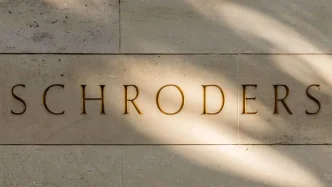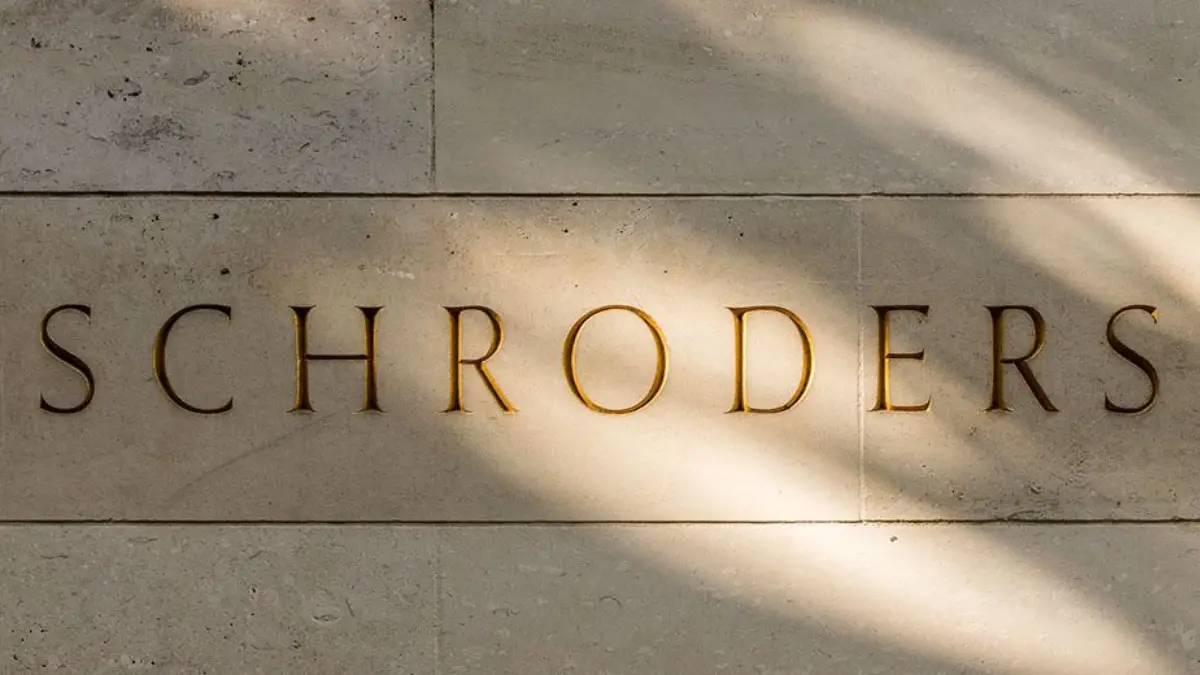Singapore has cemented its position as a global leader in financial technology with the announcement that Schroders, a UK-based asset manager overseeing $1 trillion in assets, is establishing a Digital Assets Centre of Excellence in the city-state. This move, following the firm’s participation in Singapore’s Project Guardian tokenization sandbox, underscores the island nation’s growing reputation as a hub for digital asset innovation, even as other jurisdictions, including the UK, roll out similar initiatives.
A Strategic Choice for Digital Innovation
Schroders’ decision to set up its digital assets hub in Singapore, rather than in its home base of the UK—where a Digital Securities Sandbox (DSS) has recently been launched—speaks volumes about the city-state’s allure for financial institutions exploring blockchain and tokenization technologies. Singapore’s proactive regulatory framework, spearheaded by the Monetary Authority of Singapore (MAS), has created an environment conducive to experimentation while maintaining stringent oversight to protect investors. This balance has attracted global players like Schroders, who aim to shape the future of asset management through digital transformation.
The firm’s involvement in Project Guardian, a collaborative initiative by MAS to explore asset tokenization and decentralized finance (DeFi), has evidently played a pivotal role in this decision. Schroders joined the project in 2023, alongside other industry heavyweights, to test innovative financial structures such as Singapore’s Variable Capital Companies (VCCs) for fund tokenization. The goal was to enhance retail access, streamline processes through automation, and offer personalized investment solutions. These experiments have provided valuable insights into how digital assets can coexist with traditional financial systems, paving the way for the establishment of the new center.
Meagen Burnett, Schroders’ Chief Financial Officer, emphasized the transformative potential of digital assets during the announcement. “Digital assets are transforming asset management in a tale of two halves – the existing financial ecosystem, and the new digitally native ecosystem” she said on the occasion of the hub’s launch. Burnett highlighted the importance of navigating both worlds—leveraging technology within current frameworks while exploring opportunities in emerging digital landscapes to meet the needs of future clients.
Driving Best Practices and Knowledge Sharing
Beyond experimentation, Schroders aims to position its Singapore hub as a leader in establishing best practices for the digital asset sector. The firm plans to engage with global policymakers to shape regulatory standards that foster innovation while ensuring stability. This approach aligns with Singapore’s own ambitions to be a thought leader in fintech, as evidenced by its hosting of numerous international conferences and partnerships with global financial institutions.
In addition to policy advocacy, Schroders intends to contribute to the local ecosystem through academic collaborations. By partnering with Singaporean universities, the firm seeks to bridge the gap between theoretical research and practical application in digital finance. This mirrors similar initiatives by other asset managers, such as Northern Trust, which has also established a presence in Singapore to tap into the region’s talent pool and innovative spirit.
These efforts are not merely symbolic. The intersection of academia and industry in Singapore has already yielded tangible advancements, with local institutions like the National University of Singapore (NUS) and Nanyang Technological University (NTU) producing cutting-edge research on blockchain scalability and security. Schroders’ commitment to knowledge sharing could further accelerate the development of skilled professionals equipped to tackle the challenges of a rapidly evolving financial landscape.
A Broader Push into Digital Assets
Schroders’ focus on digital assets is not new. Since 2023, the firm has been actively exploring tokenization and blockchain applications. A notable milestone was its partnership with Calastone, a UK-based fund distribution platform known for pioneering fund tokenization. This collaboration allowed Schroders to delve into the mechanics of tokenizing investment vehicles, a process that converts traditional assets into digital tokens on a blockchain for enhanced liquidity and accessibility.
Additionally, Schroders Capital, a division of the firm, has ventured into tokenizing insurance-linked securities (ILS) on a public blockchain, demonstrating the versatility of digital assets beyond conventional funds. These initiatives reflect a broader trend among traditional financial institutions to integrate blockchain technology into their operations, driven by the promise of reduced costs, faster transactions, and greater transparency.
However, unlike some of its competitors—such as BlackRock, Fidelity International, Franklin Templeton, UBS, Wellington, and UK-based abrdn—Schroders has yet to launch a public tokenized fund outside a sandbox environment. Firms like BlackRock have already introduced tokenized money market funds, gaining first-mover advantage in a market projected to grow significantly in the coming years. The establishment of the Digital Assets Centre of Excellence in Singapore signals that Schroders may soon join this cohort, leveraging insights from Project Guardian to roll out innovative products for retail and institutional investors alike.
Singapore’s Competitive Edge in Fintech
Singapore’s emergence as a preferred destination for digital asset hubs is no accident. The city-state has invested heavily in creating a regulatory sandbox environment that allows firms to test novel financial products without the full burden of compliance during the exploratory phase. Project Guardian, for instance, has enabled participants to experiment with tokenized funds, DeFi protocols, and cross-border payment solutions under the watchful eye of MAS, which provides guidance to mitigate systemic risks.
Moreover, Singapore’s strategic location in Southeast Asia offers proximity to some of the world’s fastest-growing economies, where demand for innovative financial services is on the rise. The region is home to a burgeoning middle class and a young, tech-savvy population eager to adopt digital solutions for wealth management. By basing its digital assets hub in Singapore, Schroders positions itself to capture this market, potentially outpacing competitors who remain tethered to more conservative regulatory environments.
The city-state’s robust infrastructure also plays a role. Singapore boasts world-class connectivity, a highly skilled workforce, and a legal system that inspires confidence among international investors. These factors, combined with government incentives for fintech startups and established firms alike, create a fertile ground for innovation. It is little wonder, then, that Schroders opted for Singapore over the UK’s Digital Securities Sandbox, which, while promising, is still in its nascent stages and lacks the proven track record of its Southeast Asian counterpart.
Challenges and Opportunities Ahead
Despite the optimism surrounding Schroders’ new hub, the path to mainstream adoption of digital assets is fraught with challenges. Regulatory uncertainty remains a significant hurdle, as global standards for tokenization and blockchain-based financial products are yet to be fully harmonized. While Singapore provides a relatively clear framework, firms like Schroders must navigate a patchwork of rules when expanding their offerings to other jurisdictions.
Security concerns also loom large. High-profile hacks and scams in the cryptocurrency space have eroded public trust in digital assets, prompting calls for stricter oversight. Schroders will need to prioritize robust cybersecurity measures and investor education to ensure that its tokenized products are perceived as safe and reliable alternatives to traditional investments.
On the flip side, the opportunities are immense. Tokenization has the potential to democratize access to asset classes previously reserved for institutional investors, such as real estate and private equity. By breaking down these assets into smaller, tradable digital units, firms can lower the barriers to entry, attracting a broader clientele. For Schroders, this represents a chance to redefine its role in the asset management industry, particularly as younger generations, accustomed to digital-first solutions, become a dominant force in the market.
Looking to the Future
As Schroders embarks on this ambitious venture in Singapore, the financial world will be watching closely. The Digital Assets Centre of Excellence is not just a regional outpost but a statement of intent—a commitment to bridging the gap between traditional finance and the digital frontier. Whether this translates into a public tokenized fund offering remains to be seen, but the firm’s track record of innovation suggests that such a development is on the horizon.
For Singapore, Schroders’ arrival reinforces its status as a global fintech powerhouse. As more institutions follow suit, the city-state could become the epicenter of a financial revolution, reshaping how assets are managed, traded, and owned in the 21st century. The question now is not whether digital assets will transform the industry, but how quickly firms like Schroders can harness their potential to stay ahead of the curve.
















